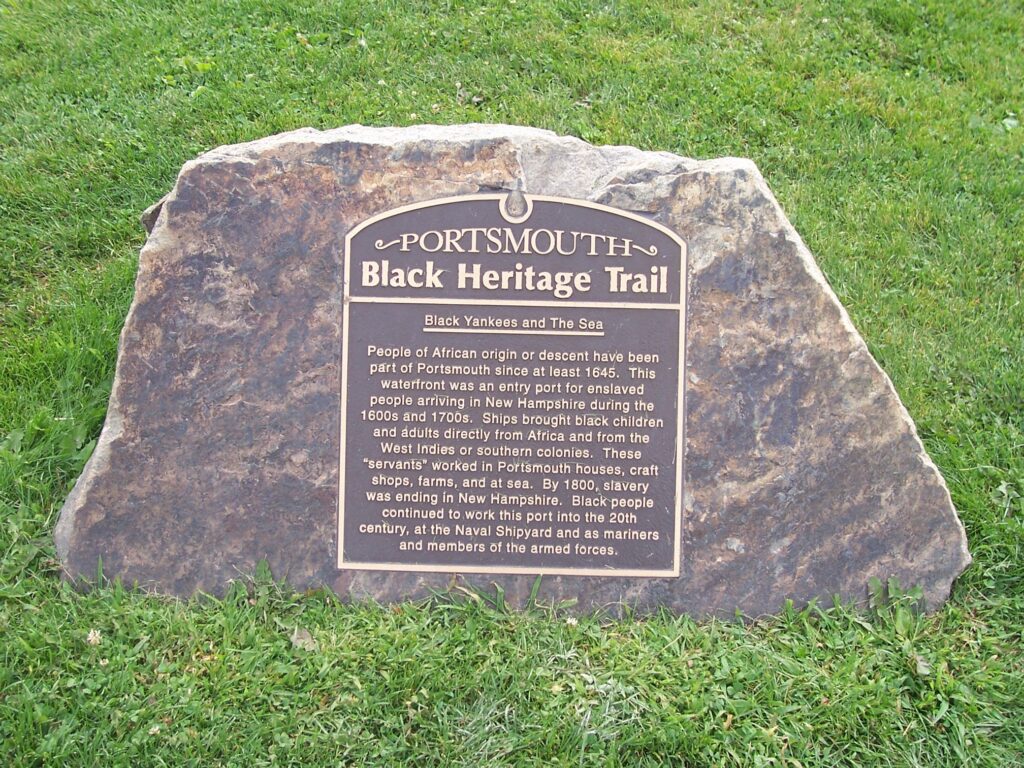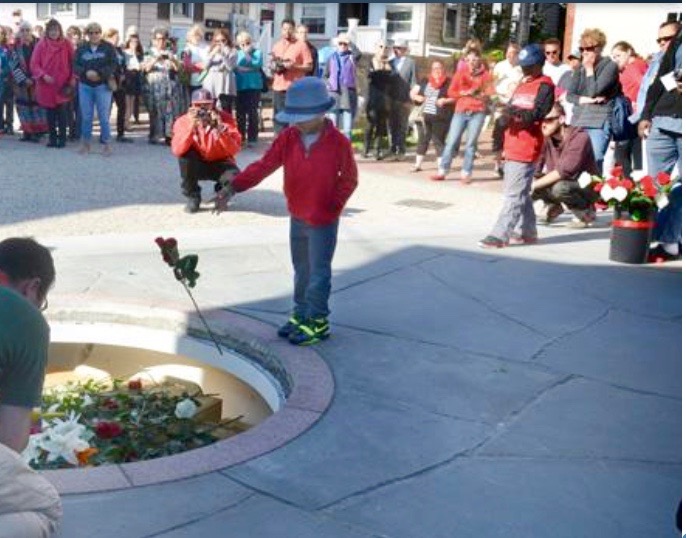This post continues our Wednesday series that highlights historic Middle Passage/UNESCO Site of Memory markers that have been installed and those locations where a remembrance ceremony was held since MPCPMP incorporated 9 years ago. MPCPMP is/was involved in the planning for the installation of most of these markers (indicated by an * next to the state name), and other organizations are/were responsible for some.
New Hampshire
African presence in the colony of New Hampshire can be traced back to 1645, with the first documented captive person from the west coast of Africa; he was bought by a Mr. Williams of Piscataqua. Although the number of blacks in the colony was small in the 17th century, records of wills and inventories indicate that the enslaved were included in the estates of several prominent families. Because the colony of New Hampshire did not impose a tariff on the importation of captive Africans, many were transported to the state’s only port at Portsmouth or along the Piscataqua River and smuggled into Massachusetts and other colonies.
Portsmouth, with its history as a New England human trade hub, primarily transported the enslaved between Africa, Portsmouth, Virginia, and the West Indies. Africans who were victims of the trade usually arrived in the state through the port of Portsmouth, and according to Valerie Cunningham, “The town’s slave population grew from a reported 52 in 1727 to about 4% of the total population in 1767 when 187 slaves were reported . . .” with as many as 700 black people here by the American Revolution. By this time, the colony had become a major Atlantic seaport. Most of the enslaved worked in the shipyards, on the waterfront, in tradesmen’s workshops, and in family homes. As a result of a very active abolitionist group, the state became an Underground Railroad route of escape for enslaved people.
In 2015, Portsmouth installed a marker to honor the African ancestors who were brought to the state and their descendants who played key roles in its early history. Please follow these links to read more about New Hampshire and slavery and to find resources for additional information:
http://www.seacoastnh.com/first-blacks-of-portsmouth-part…/…
https://blackheritagetrailnh.org/nh-history/

Photo credit: Melanie Stetson Freeman/Staff-Christian Science Monitor

Photo credit: Suzanne Laurent/Seacoastonline
